Sci-Fi Noir Detective Saga “eJunky” Explores the Risks and Consequences of Relying on Technology – An Interview with Nicholas Tana
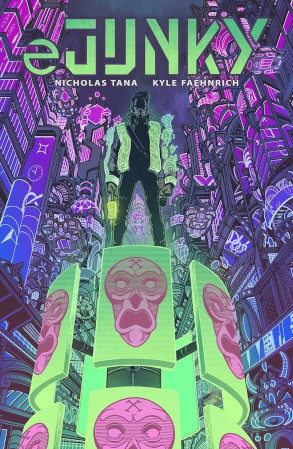

eJunky is a genre-bending sci-fi noir graphic novel set in a dystopian future where society has been reshaped by technology.
Nicholas Tana conceived eJunky following years of work as a biotech consultant and seeing how the effort to use technology to make life easier and even avoid pain and suffering can have dire consequences.
eJunky #1 features incredible cover art by Darick Robertson (The Boys) and variant covers by Daniele Serra, Kyle Faehnrich, and Stefano Cardoselli.
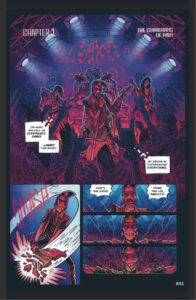 Where did you get the idea for eJunky?
Where did you get the idea for eJunky?
Like many good stories, it started with a nightmare. I woke up sweating after dreaming that I had been abducted by aliens. They appeared like thin humans with extra large heads and big eyes, shadowy figures, in the distance—like moving trees creeping toward me from the dark corners of my bedroom.
As they came within a few feet, I could see that they were dressed in spandex one-piece outfits, midnight black, which later glowed various neon colors, a rainbow array.
There was a sense that I bore witness to their emotions changing, almost like those 1980s mood rings. It was not unlike seeing auras, I would imagine. Their visors and clothes kept changing colors according to their mood.
Soon I was forced to wear one of their visors, too. Immediately, I got the sense that this served a serious purpose of survival, a way of protecting us from each other, as if we needed to know how we were feeling in order to keep from killing each other. My fear quickly changed to calmness for a moment. Until I started to watch as they dissected my body. There was a flicker of fear, but it was swept away with complacency, too.
Then, I woke up.
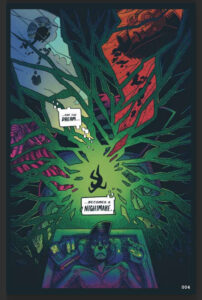
What makes eJunky relevant today?
The risks and consequences of relying on technology to solve all our human problems are a central theme in eJunky. As a society, we feel as if we can eliminate all our problems and suffering through technology. This has been what we’ve been attempting to do since the dawn of time. In some ways, all this technology has made life easier. We no longer have to hunt for survival. Most of us don’t have to toil in fields. For us, needs are mostly replaced with wants. However, in other ways, all this technology really hasn’t improved the human condition.
eJunky adds to the rich debate on how far corporations and governments should go to protect people when it comes to sacrificing freedoms. The use of emotional regulation technology to display everyone’s feelings is the ultimate invasion of privacy in the name of peace and prosperity. The character, Tumult, who is a clone, predicts a future in which clones are an everyday part of our world and touches upon the human rights issues that are involved. The People Against Technology (P.A.T.) present in the story are a fictionalized representation of the young people today rejecting mobile phones.
Additionally, eJunky offers a fictionalized portrait of the current debate over where to draw the line using drugs and technology to eliminate pain and suffering. Think about how technology is being blamed for compromising sleep and cognitive abilities and increasing the risk of mental illnesses, depression, anxiety, Alzheimer’s disease, and attention-deficit/hyperactivity disorder (ADHD). For every solution technology creates, it introduces new problems.
In the story, you present technology as both good and bad, which is it?
Technology can result in things some might consider good while others consider bad. The world of eJunky isn’t black and white. Not all answers are absolute. The outcomes can be very subjective. This goes for our intentions as well. In many ways, technology seems to have changed how we spend our precious human lives, without improving the quality of our life experiences. Sure, we no longer have to hunt for our food or fight others to the death to survive, at least, not the majority of us. Most of us let others do that sort of thing for us and simply pay our taxes.
This means we have more time for other activities, which we struggle to fill with mostly meaningless activities, like playing video games, a meager attempt to recreate the adrenaline rush of hunting or fighting. The same can be said for reading books or comics or watching movies; unless those stories get you to think about your life choices in a deeper, more meaningful way, it’s all just a pleasant distraction.
Personally, after witnessing profound suffering while caring for my child who suffers from a rare genetic disorder, I’ve become much more spiritual. I believe life is meant for so much more than survival and distracting ourselves with entertainment, though those things can bring temporary joy and escape. Life involves learning to be kinder, nicer people as we all face our own suffering and pain and, also, training ourselves to transform that suffering into a path to enlightenment.
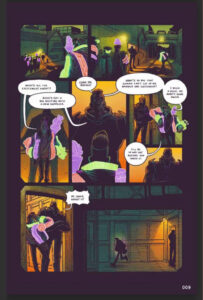 How have your personal experiences inspired the story?
How have your personal experiences inspired the story?
Besides my spiritual beliefs influencing my story as I already mentioned, my work experiences have given me insight into science and biotechnology, its features and benefits, its risks, and the chaos it can cause, too—which I write about in detail with futuristic predictions on where things are going.
As an IT consultant for over twenty years with experience in healthcare and biotech, I’ve seen firsthand what we’re doing to help sustain life. I’ve also been privy to how we hope to use technology to help save lives and end disease. At the same time, with a child in hospice who suffers from a rare genetic disorder that can be life-threatening, I’ve seen the horrible limitations of science and medicine, too. Sometimes, the cure appears worse than the disease. Sometimes, it feels like we’re trying to play God and we’re creating our own personal Frankenstein.
This is not to discount the value of medicine and science. That’s why in the story, I play both sides, trying to make an argument in favor of and against the new forms of technology that present the central conflict of the story.
In eJunky, the World Corporation Organization has found a way to eliminate pain and suffering to an extent, but we soon learn that their efforts have dire consequences. The same goes for the supposed antagonists The Guardians of Pain who have a point in trying to halt the mandate for emotional regulation technology, but do so in a way that brings chaos, death, and destruction.
As I’ve seen both the benefits and risks of science and medicine, I’ve come to believe that we should try what we can do to reduce suffering and pain, but not forget that some of it is necessary for growth, and impossible to completely eradicate without losing a part of what makes us human. We need to find a balance.
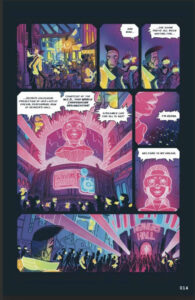 Would you consider eJunky science fiction, mystery, or horror?
Would you consider eJunky science fiction, mystery, or horror?
eJunky straddles the genres of science fiction, horror, mystery, and dystopian literature. The focus on biotechnology and the future means that it’s primarily science fiction.
However, eJunky is like a horror story in that The Guardians of Pain present themselves as masked terrors who force painful, brutal experiences through cellular memory onto the world, opening up a Pandora’s Box of torment. For most of the story, they almost appear as boogie men.
The central protagonist, Hector Holmes, whose last name is a tribute to the great fictional detective Sherlock Holmes (I imagine he’s a distant relative), reveals the story’s mystery-like qualities. Hector is essentially working as a hired detective and must find clues to locate and infiltrate the Guardians of Pain; this is the central plot of the story with lots of twists and turns. To me, it feels reminiscent of those James M. Cain hardboiled detective stories (at least that was the intention, anyway).
Despite all the above mentioned genres, eJunky is set in a dystopian world in which no character is clearly good or bad. Hopefully, the unique blend helps make the story both original and appealing to all genre fans.
How does eJunky compare with other dystopian tales?
eJunky is set in a bleak futuristic world for one and as such has a pessimistic, foreboding tone. Much like Brave New World, 1984, and Fahrenheit 911, the big brother tropes embodied in the World Corporation Organization are central to the plot.
People’s willingness to exchange freedom for safety, order, and peace, and the inherent risks involved are also a shared motif amongst most dystopian tales. In addition, there’s the common reliance on the anti-hero in the protagonist Hector Holmes, which is also common in these types of stories. Technology has become ubiquitous and people are sort of trapped by their natural tendency to try to avoid pain and suffering without realizing it is part of the human condition and a necessary part if we’re to learn to grow and evolve into a higher consciousness.
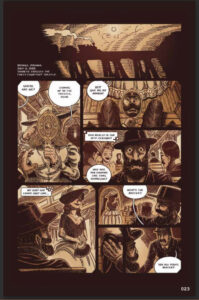
What do you hope the reader will take away from the story?
Mostly, I want readers to be entertained. Beyond that, I hope that they will also get a sense of the themes and the deeper moral message underlying the action and suspense. Technology can help us in some ways, but it’s not a replacement for the mind. Our ability to change the world by changing our minds beats regulating away our emotions any day.
My hope is that the story gets people thinking and talking about all of the important ideas I’ve already mentioned. Only through discussions, debate, and careful consideration can we begin to take charge of technology and not the other way around.
Pre-order eJunky on Simon and Schuster now at https://www.simonandschuster.com/books/eJunky/Nicholas-Tana/9781639691814
Nicholas Tana is a writer, director, producer, and musician. He is the creator of the graphic novel Hell’s Kitty, which spawned a web series, a feature film, and an award-winning musical at the Hollywood Fringe Festival. Tana has also written a dark prequel to Snow White for Disney Publishing and his supernatural time travel tale, “Forgotten Shadows”, recently appeared in the Fall 2022 issue of The Horror Zine. Tana runs his own production company, Smart Media, for which he has written and directed numerous projects. When he’s not working, he loves reading, swimming, riding his electric bike, and watching movies.
Kyle Faehnrich is a comic artist/illustrator and founder of Goons & Goblins Art. He draws from a variety of influences, the main inspirations for his style come from horror comics and traditional tattoos. Farhnrich is creatively motivated by a fascination with the dark and the unknown. Kyle graduated with a BA in Illustration from Columbia College Chicago in 2019, but he’s been making comics all his life. eJunky will be Kyle’s first illustration of a full-length graphic novel. He currently works at Aw Yeah Comics in Skokie, Illinois. When not working or hunching over his tablet, Kyle can be found drumming, watching horror movies, playing video games, or out enjoying nature.

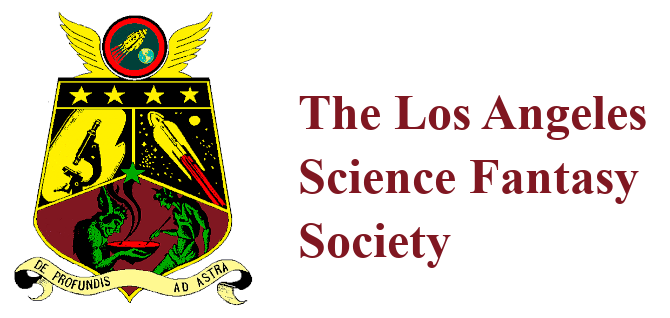
0 Comments on “Sci-Fi Noir Detective Saga “eJunky” Explores the Risks and Consequences of Relying on Technology – An Interview with Nicholas Tana”